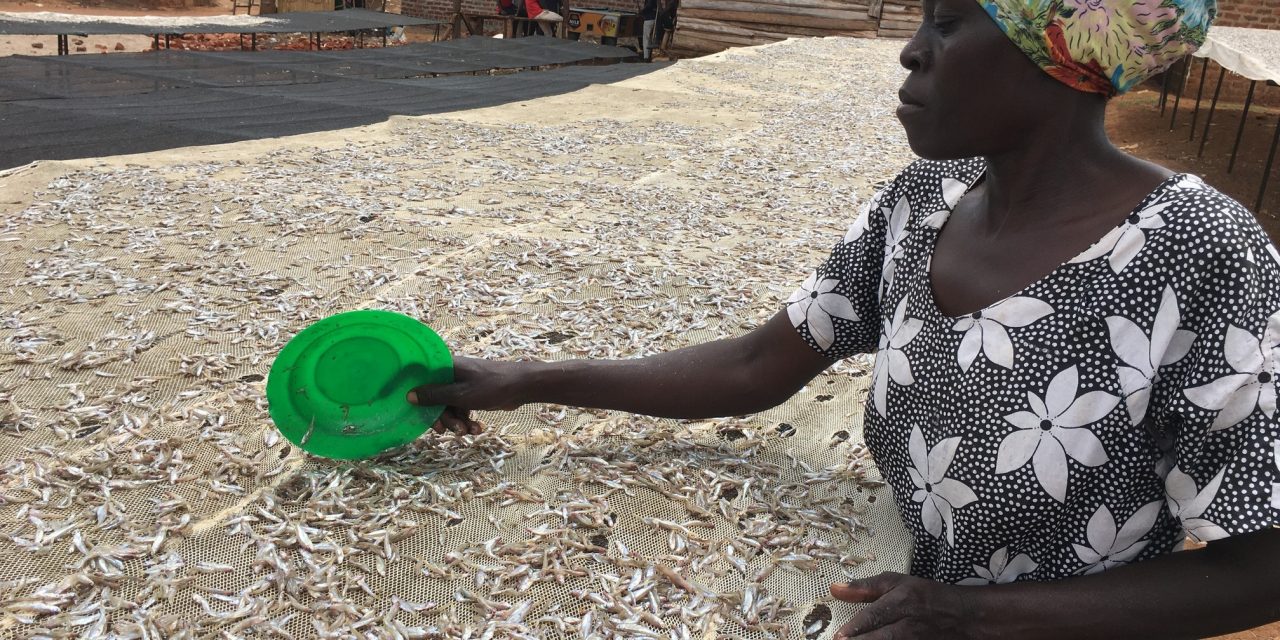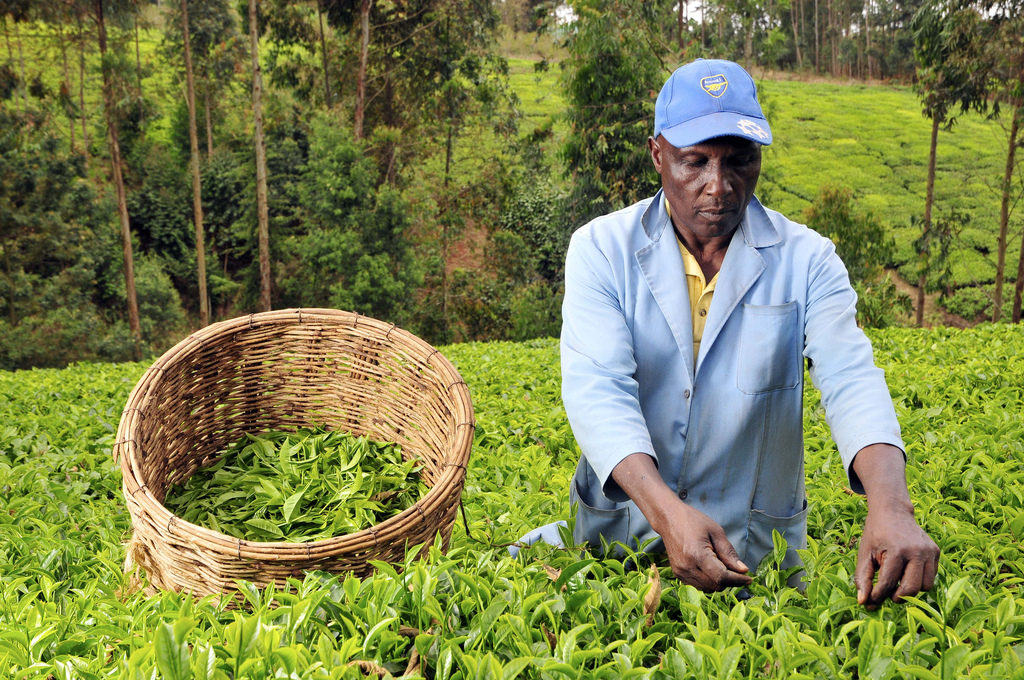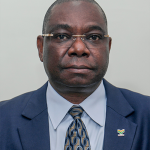Share the post "Increasing Uganda’s appetite for silver fish"
By Pius Sawa
Fishing communities in Uganda are using improved, hygienic practices to process silver fish to supply new markets and enhance local nutrition. Finger-sized silver fish, known locally as ‘Mukene’, are now spread out to dry on raised racks. Solar tent dryers are further enhancing dried fish quality – particularly during the rainy season.
Fish processing groups at Lake Victoria are introducing these innovations after receiving training from NutriFish – a project which is sensitizing communities on the superior nutritional content of silver fish and the need to protect their quality during processing. “You are always worried of the rains because at times, it starts as early as ten in the morning,” says Teraza Wilimina, a member of the Kikondo women’s fish processors group. The rain, she says, keeps customers from buying the fish and can lead to significant losses in sales.
Amanna Bashir, another fish processor has been buying and selling silver fish along Lake Albert for many years. “I was drying my fish in the sun and only managed to sell two crates a day but, since the solar tent drier was built, quality has improved and I have been able to sell up to five crates a day,” says Bashir, who can now leave her silver fish in the tent and go home instead of chasing animals away.
Fishing for nutrition
To change mindsets that silver fish was only a food for the poor or for animals, NutriFish, which is funded by the International Development Research Centre, Canada and the Australian Centre for International Agricultural Research, developed radio campaigns, reaching 12 million listeners since 2019 with messages around their nutritional benefits. Musa Odwoka, a Lake Albert fisherman, had never previously considered silver fish as human food. “I thought I cannot eat small fishes when I am a fisherman, and I spent a lot of money on buying tilapia and Nile perch for my family.” But when NutriFish came and provided information to the community, Odwoka changed his habits. “The training made me understand that these small fishes have a lot of nutrients and are good for the body. I can now save money buying the affordable silver fish and use the savings to educate my children who are healthier now that they eat Muziri [another small pelagic fish species] every day.”
“Micronutrient deficiencies constitute serious challenges to human health and economic development in Uganda, particularly among vulnerable groups such as women of reproductive age and children under 5 years,” says Jackson Efitre of the NutriFish project, who goes on to explain: “Recent statistics from the Uganda Demographic and Health Survey estimate that 29% of our children under 5 years are stunted, 4% are wasted and 11% are underweight.” Thanks to the efforts of the project, there has been a 30% increase in consumption of silver fish, which contains micronutrients like iron, zinc and calcium.
Value addition
Eunice Muwanguzi, who was also sensitized by the project, now runs a successful business drying and selling silver fish to processors as well as producing ready-to-eat fried silver fish. She collects the fresh fish from the landing site, cleans them and cooks them in a big pan. After they are fried and salted, she lets them cool before packing them into plastic bags. “I use this cup to measure, so one cup (about 500ml) is sold at around US$1,” she explains. She also sells larger packs of 1kg for about US$3 and per day, earns around USh120,000 (US$32) from clients based around Kikondo and other major towns like Jinja and Kampala.
The project has encouraged women processors to form groups so they can bulk sell their fish products to supermarkets and to Nutreal, a private processing company and partner of the NutriFish project, which is innovating to increase the availability and variety of fish-based products. “We produce five products enriched with Mukene,” explains Dorothy Nakimbugwe who heads the Nutreal factory. “We have baby food, sauce, maize meal, snacks and seasoning. A 50g portion of the baby food flour provides more than a third of a child’s daily protein, iron, zinc and folic acid requirements,” she explains. The Nutreal products have been certified by the Uganda National Bureau of Standards and recommended for sale in retail shops.
Demand for dryers
With increasing demand for dried silver fish and, as the project comes to an end, the need for more solar tent driers is of great concern. “We need more tents like this one because we are getting more orders,” says Ocakacon Muhammed, a fish processor from Dei, a village near Lake Albert. However, the cost of tent construction – between KSh18-20 million (US$4,774-5,304) – is unaffordable to most.
Once the project comes to an end, Micheal Aloya, the district fisheries officer in Pakwach District says they are trying to see what support can be provided. “The women selling silver fish in Pakwach are organized into groups and, of late, we have seen private partners coming in who are interested in helping them. Raised racks have been constructed by the Food and Agriculture Organization of the United Nations along the lake shores and in Dei, and the National Agricultural Research Organisation has bought a modern electrical smoking kiln,” he says. “If we can improve on product packaging and extend shelf life then those women will be able to continue to operate their businesses seven days a week. They will make good money from the tourists and passengers passing through,” he asserts.









